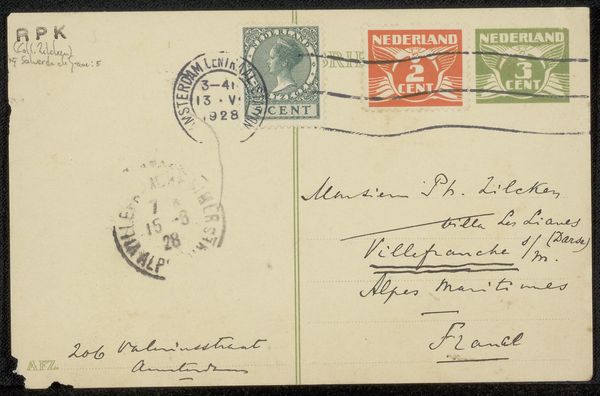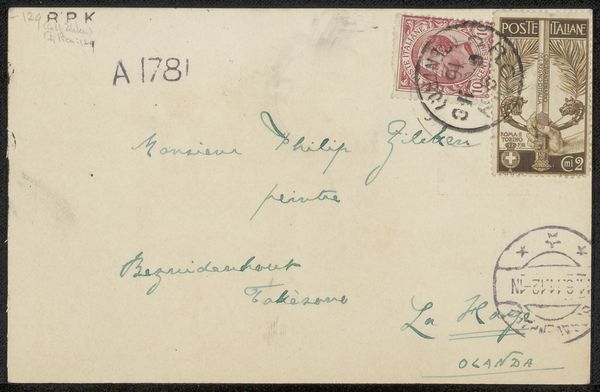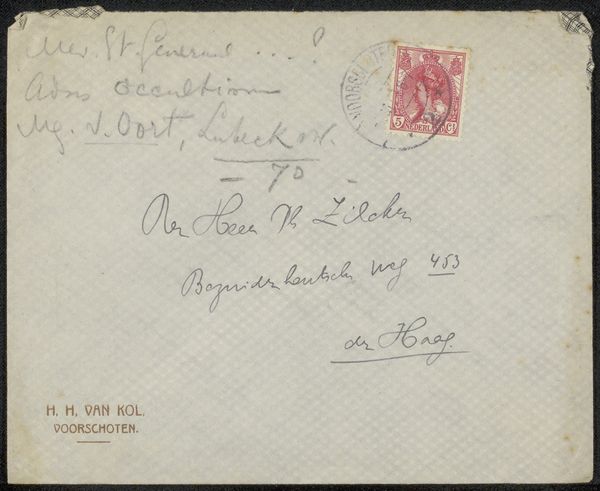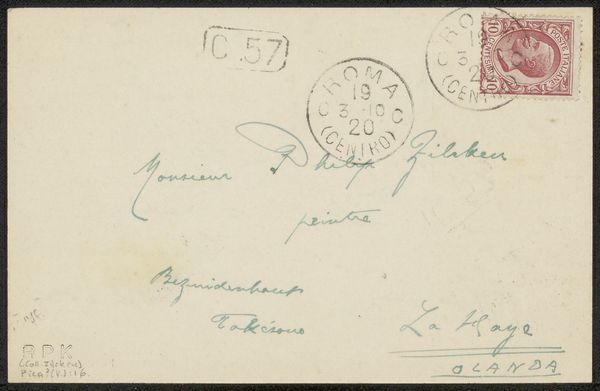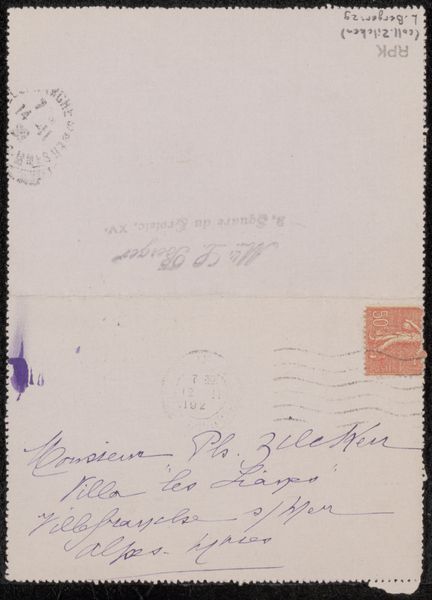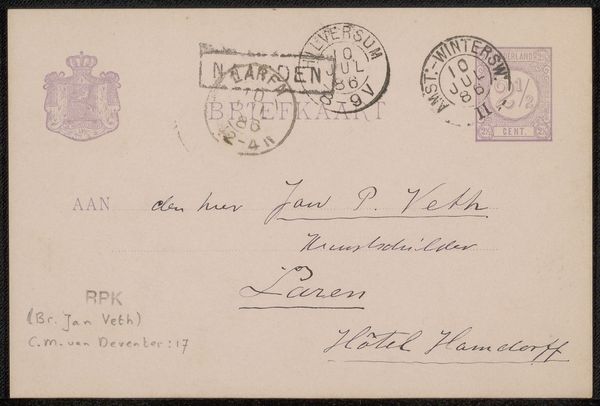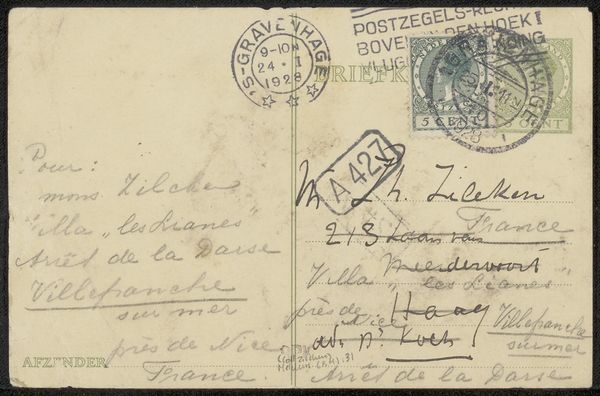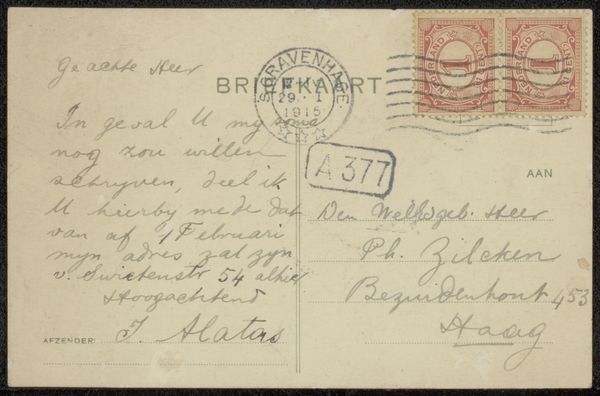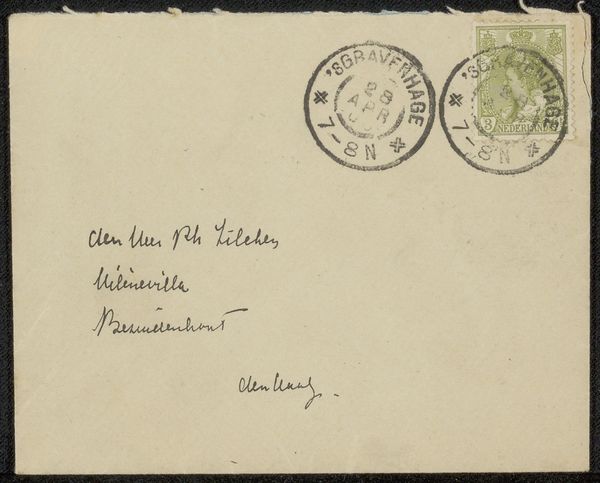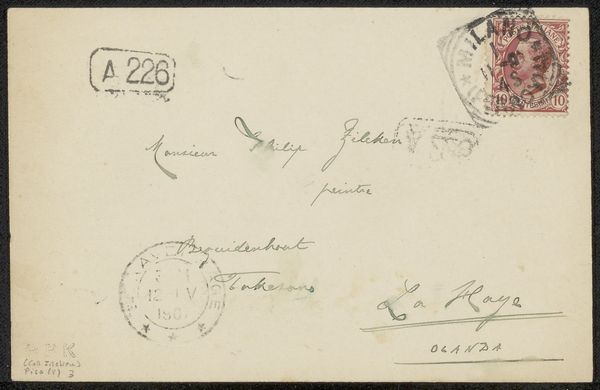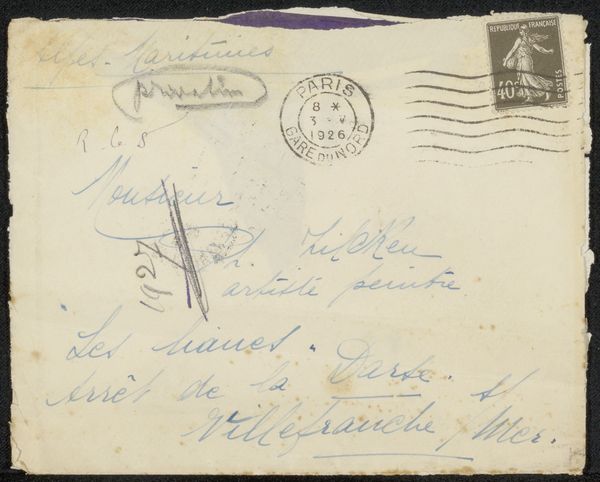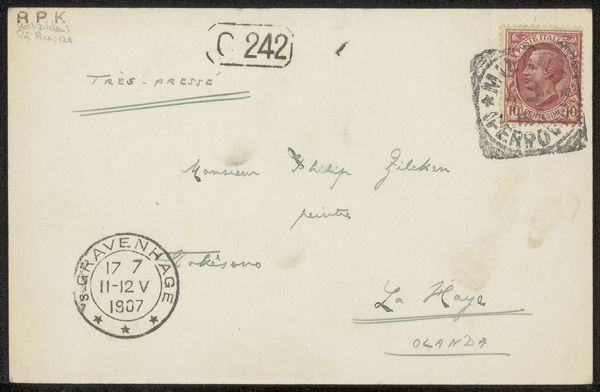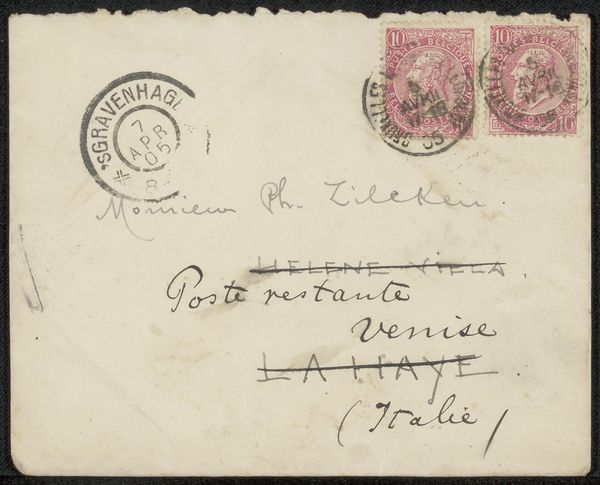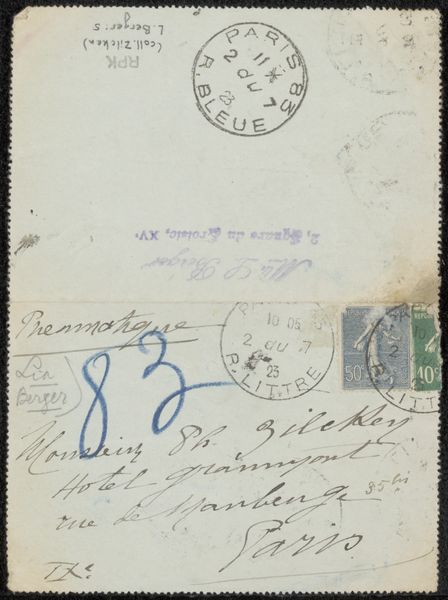
drawing, paper, ink
#
drawing
#
hand-lettering
#
hand drawn type
#
hand lettering
#
paper
#
personal sketchbook
#
ink
#
hand-drawn typeface
#
ink drawing experimentation
#
pen-ink sketch
#
pen work
#
sketchbook drawing
#
sketchbook art
#
calligraphy
Copyright: Rijks Museum: Open Domain
Curator: This object is an envelope addressed to Philip Zilcken, drawn by Anna Singels-Heintz, dating from before 1915. It's an ink drawing on paper. Editor: My immediate impression is one of intimacy, a delicate, handwritten artifact tinged with the quiet dignity of pre-war correspondence. It feels incredibly personal. Curator: It’s intriguing to consider the social context of letter writing at the time. The envelope itself becomes a canvas, doesn't it? A site of connection in a period of increasing political turbulence in Europe. It is a testament to communication before the ubiquity of instant digital messaging. How different to communicate by post, compared to social media today? Editor: Precisely! The act of physically producing this object—choosing the paper, mixing the ink, carefully forming each letter—speaks volumes about the value placed on communication and craft at the time. What’s interesting to me, as well, is the class dimensions within Anna's relationship to the tools available at her disposal for ink-on-paper production. Curator: And that typeface, so beautifully rendered by hand. The stamp itself, a symbol of national identity, sits alongside the handwritten address, personalizing what would otherwise be a purely functional object. It raises questions about Singels-Heintz's status and artistic circle in a pre-war European landscape, particularly since she seems to have known the receiver personally. Editor: It's about the means of communication—the materiality of the message as crucial as its content. We can extrapolate an enormous amount from what otherwise might appear to some as nothing more than ephemeral communication. Curator: This artwork offers an intimate look at individual narratives enmeshed within larger cultural forces of the time. How identity shapes communication and artistic expression in moments of great upheaval, but, further, to investigate Anna Singels-Heintz as a person too easily overshadowed by famous male peers within this pre-war milieu. Editor: Ultimately, by analyzing the materiality and its context, we recognize not just a message sent, but a record of labor and design—revealing so much about a society's values around art-making and communication.
Comments
No comments
Be the first to comment and join the conversation on the ultimate creative platform.
